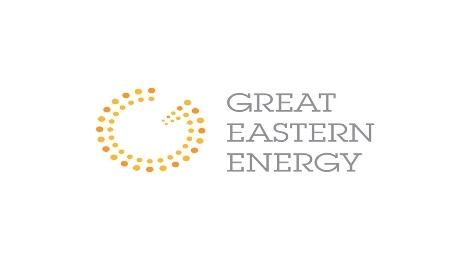A number of alternative energy providers have an offering that distinguishes them from the incumbent energy utilities: fixed energy pricing for natural gas. A fixed-price natural gas plan is not so much about saving money (though that can happen if you’re smart about timing the market) as it is about helping commercial clients meet their budget by protecting against upside pricing risk.
Why Have a Fixed Price Plan? Price Certainty. – Put simply, a fixed price plan gives price surety. If how much energy the company will use can be forecasted, a CFO can then confidently budget for her or his company’s energy expenses regardless of market conditions. This is a huge advantage for commercial customers such as restaurants and manufacturers since energy is a big share of their operating budget. Remember the Polar Vortex of 2014 and the price spikes that accompanied it? A fixed-price plan is the perfect safeguard against this type of occurrence.
How Fixed-Price Contracts are Like Financial Products. – In buying a commodity such as gas, with pricing that fluctuates on the open market, there is an element of risk; just as with investing in any financial asset. The risk of losing money is present whether you buy your gas at the market rate or a pre-arranged fixed price. However, for many buyers price uncertainty is the most difficult to tolerate. In other words, fixed-price energy contracts function as an insurance policy against such swings in pricing. Therefore, the motivation to enter into a fixed-price contract is for the purpose of projecting anticipated cash flow.
Genuine vs. Incomplete Fixed Price Plans. – A true fixed price plan for natural gas incorporates all the costs associated with facilitating and delivering a client’s annual usage of natural gas to the local utility distribution system. It does not incorporate any fees and additional charges charged billed by the local utility company, also known as “Distribution Charges”. These charges are billed in addition to the gas cost for the use and maintenance of the local utility infrastructure. Some customers may think they have a fixed price because certain delivery fees and other charges, which can sometimes be variable, are fixed. These additional elements can be quite significant, adding 5 to 100 percent of the price of the gas itself. Such costs include capacity” or shipment cost, “shrinkage” costs (for gas lost in the transport process). However, some “fixed rate” plans still have a variable base cost of natural gas. In other words, a portion of the gas bill will still vary based upon market prices, such as the monthly and spot natural gas prices on the New York Mercantile Exchange (NYMEX) market. Customers looking to lock in their natural gas price should read the fine print to determine whether their energy provider is charging an all-in fixed price that is truly and completely a fixed price, or a “component fixed price” that covers only certain parts of the gas price and still leaves them vulnerable to price volatility risk.
Potential for Cost Savings. – While price certainty always comes first, fixed price plans can also offer customers the chance to optimize savings by identifying down trends in the market. In other words, if prices are rising, a customer can lock in a lower-than-market price, and then save money over the life of the contract. The catch: these savings can’t be guaranteed, since the market price for gas could always go down instead of up. Savvy energy providers seek to minimize this pricing risk by employing energy experts who combine astute expertise on market price trends with an understanding of a particular client’s usage and budgeting needs. This will then be communicated to the client by his or her energy advisor, and together they will determine whether or not to lock in a fixed-rate plan.
Energy Advising and How to Pick a Plan. – So how do energy advisors make recommendations regarding a fixed-rate plan? High-caliber energy providers offer customers advisory services based on market analysis and customer usage patterns to recommend an optimal pricing plan, whether fixed or variable. It all starts with evaluating how the consumer uses that energy. Commercial customers are more likely to adopt a fixed price if natural gas use is a big part of their variable costs. For example, a business making pizza will use a lot of natural gas to heat the ovens. Consequently, the pizza business runs a big risk of having a spike in costs and a loss of profits if gas prices rise, and should consider a fixed price plan. A shoe store, by contrast, might only use natural gas for heating. This means that gas is likely to be a very small share of its expenses (compared with, say, inventory, rent, wages, and advertising). If gas is a small share of expenses, the risk from price volatility is low.
Once an energy advisor evaluates the customer’s usage, it then may recommend a seasonal and/or market analysis strategy. For instance, in terms of seasons, a customer that uses all its gas in the winter for heating, like the shoe store, might not want to use fixed pricing, because prices are highest in the winter. The pizza parlor, though, would use gas more consistently year-round, and would be a prime candidate to lock in at a reasonable annual rate.
A market analysis strategy focuses on the cycle of the marketplace. If we were headed into a bearish market — meaning prices are declining — a good analyst would advise a customer to wait to lock in prices. A market with rising prices, however, is ideal for locking in a fixed price quickly.
Flexibility in Fixed Price Plans. – Every energy provider offers different pricing plans. With some, a customer can take a certain price for a number of different time periods, i.e. three months, six months, or a year. Choosing a fixed versus variable price, and the time period involves a consultative process between the customer and the energy advisor. To determine the fixed price, a savvy advisor will analyze the client’s usage data, which is available from the utility. The customer’s usage is fed into the forward price curve (i.e. how the market expects prices to change over time in the near future) to calculate a weighted average price. The fixed price for a particular client emerges once all of the additional costs and fees mentioned above are incorporated into the weighted average price.
In short, alternative energy providers analyze the customer’s usage patterns, the market dynamics, and the period over which the price would be fixed. Understanding the customer’s budgeting and price certainty needs help to determine the best fixed rate.
Variable Price Plans – What They Are and Who Opts for Them. – What about customers who don’t have fixed price plans? Anyone who’s buying at the variable price is effectively purchasing based upon a price that is indexed to the market, and will fluctuate monthly. For variable price plans, the price of natural gas resets according to monthly news, weather and other external factors. Each month, the NYMEX price settles three business days prior to the month of delivery. Those who contract under this scenario often tend to be risk takers. Companies that do not worry about budgeting as much as their peers, or one where the cost can be passed along to their customers, or products. In addition, there is a daily or “spot” market. It is also known as the cash market. Some large and sophisticated industrial customers choose to purchase some of their gas on the spot market; for some, there are advantages to diversifying their gas pricing and seeking to time their market purchases. Everyone else on a variable price contract has an index price contract that adjusts monthly. Electric producers will often elect to purchase a percentage of their consumption each month in the spot market, since they pass along the cost into the power they produce.
In Closing – The important thing to remember is that natural gas customers who choose to work with an alternate energy provider have options. The customer’s first choice is to find the right provider. The second thing to consider is the pricing structure. Further, when opting for a fixed price, there is still flexibility in the way the plan can be structured. The key is to know your business and your energy costs. By working with a specialist, you can determine if you’re a good candidate for a fixed price contract.

